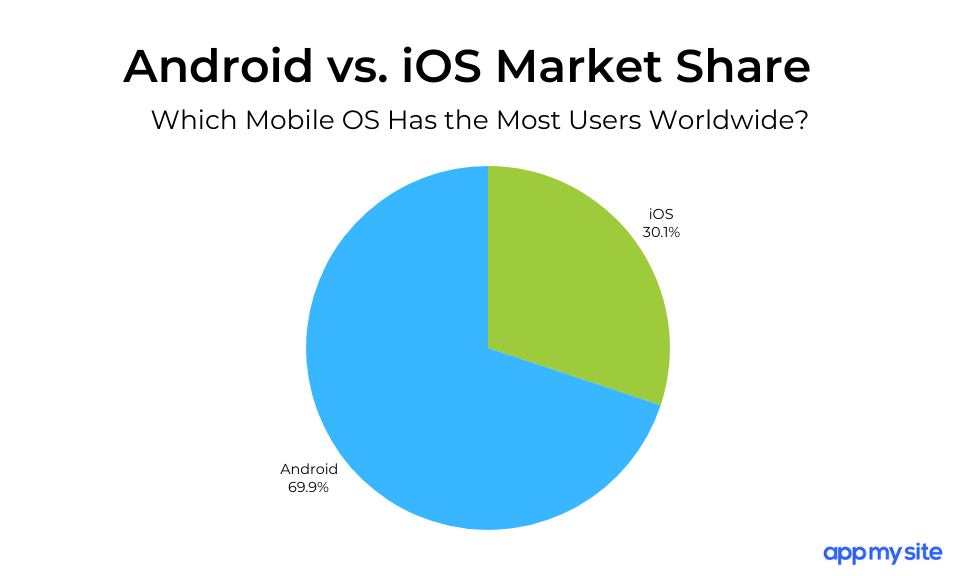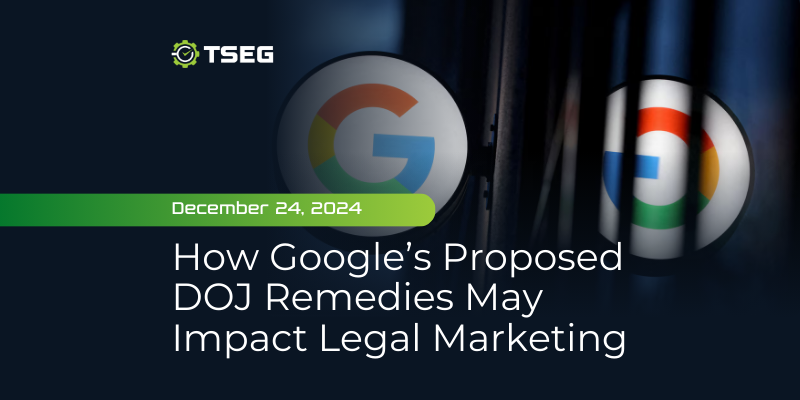How Google’s Proposed DOJ Remedies May Impact Legal Marketing
Posted on Tuesday, December 24th, 2024 at 3:27 pm
Big Tech on Trial
Google’s legal clash with the Department of Justice (DOJ) is a landmark case that could reshape the way businesses approach search and online visibility. Accusations of monopolistic practices have placed Google at the center of a heated debate about fairness and competition in the digital space.
For legal marketers, this case is a wake-up call. The remedies Google has proposed could alter the dynamics of search and reshape strategies that law firms rely on for client acquisition. From how browsers determine default search engines to the role of artificial intelligence in search, the proposed changes could impact your marketing efforts in unexpected ways.
But what exactly is Google offering as solutions, and what can legal marketers learn from these potential remedies? Let’s break it down.
Browser Agreements
A major point in the DOJ’s case revolves around Google’s agreements with browser companies, which often make Google the default search engine across devices and platforms. Critics argue that these deals limit competition and prevent users from experiencing alternatives.
To address this concern, Google proposes changes that would offer greater flexibility in default browser agreements. Specifically, these changes would allow browser companies to set different default search engines across platforms—such as using one search engine on iPhones and another on iPads. Additionally, users would gain the option to switch their default search engine at least once every 12 months, a timeline deemed reasonable under antitrust law by the court. For legal marketers, this potential shake-up means that more users might begin exploring search engines beyond Google. Adapting your firm’s marketing strategies to optimize for other platforms—like Bing or DuckDuckGo—could give you an edge in reaching clients across a broader spectrum of search engines.
According to CNBC, Google paid $26 billion in 2021 to become the default search engine on browsers and phones.

Android Contracts
The DOJ has raised concerns about Google’s agreements with Android device manufacturers, claiming these deals force manufacturers to bundle Google’s apps, like Search and Chrome, with the Google Play Store. This bundling, critics argue, limits opportunities for rival search engines to compete.
To address this, Google has proposed making its Android agreements non-exclusive. This would allow manufacturers to pre-install multiple search engines and unbundle Google Play Store from Google Search and Chrome. In other words, device makers could preload Google’s apps independently, while also offering space for rival search engines like Microsoft’s Bing to compete for visibility.
For legal marketers, these changes could mark a shift in user behavior, as competing search engines gain more prominence on Android devices. Adapting your firm’s marketing strategies to optimize for a wider range of search engines could open new opportunities for client acquisition.

Gemini
Innovation is at the heart of Google’s strategy to address antitrust concerns, with Gemini—a cutting-edge AI-powered search tool—playing a key role. Designed to compete with technologies like OpenAI’s ChatGPT and Microsoft’s AI-enhanced Bing, Gemini represents Google’s push to advance the future of search.
As part of its proposals, Google has committed to ensuring device makers and partners aren’t required to distribute Gemini to U.S. users for at least three years. This move aims to address antitrust concerns by giving competitors more breathing room to develop their own AI-driven search tools and establish a foothold in the market.
For legal marketers, the rise of AI-driven tools like Gemini could transform the search experience. Firms may need to rethink how they create content to rank in a more conversational, AI-centric environment. Additionally, the temporary absence of mandatory Gemini distribution might provide a unique opportunity for smaller search platforms to gain visibility, encouraging firms to diversify their optimization efforts.

Adapting to Change
Google’s proposed remedies in the DOJ antitrust case mark a pivotal moment for the digital search space. Adjustments to browser agreements, Android contracts, and the introduction of Gemini could significantly influence how users engage with search engines. For businesses, including law firms, these shifts present both challenges and opportunities to rethink how they connect with their audiences.
For legal marketers, keeping pace with these developments is key. As search engines broaden their reach and AI tools like Gemini emerge, yesterday’s tactics might not deliver the same results. That’s where TSEG becomes an invaluable resource. By providing adaptable strategies and innovative solutions, TSEG empowers law firms to maintain a strong presence across search platforms and prepare for what’s next.
As the implications of this case unfold, firms that embrace new approaches will be best positioned to grow. With TSEG as your partner, your firm will be ready to take on these changes and transform them into opportunities for success.
